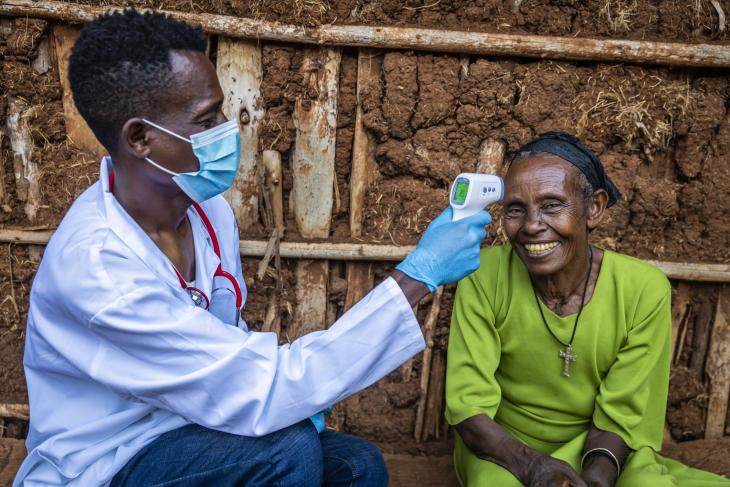Afya Uwazi: Third-Party Monitoring for the Kenya Health Sector

Ensuring medicines and other essential health commodities are available to patients when and where they need them is a key concern in Kenya. The health supply chain must be unfailing to the last mile and must demonstrate accountability and transparency given the high volume and value of those commodities. In Kenya, as in other countries, stakeholders in government, civil society, and donor partners have a keen interest in the performance of the health supply chain.
Afya Uwazi–Kiswahili for "health openness" and "transparency"–is a five-year task order awarded to AIR by USAID in July 2021, to conduct third-party monitoring for the health supply chain in Kenya. The task order provides USAID, the Kenya Ministry of Health and 47 counties, and other stakeholders with evidence of the risks and performance of the Kenya health supply chain from central warehouses through to last mile health facilities across the country.
The Afya Uwazi Project
Using tools for monitoring, analyzing, and visualizing supply chain performance and risks, Afya Uwazi combines primary data from its visits to health facilities with secondary data from Kenya’s national health databases, to assess the quality of deliveries made by USAID-contracted warehousing and distribution partners, verify stocks of critical medicines and health commodities, and assess inventory management practices. This evidence is shaped into recommendations for strengthening the health system, targeted for use by government and non-government organization partners.
Afya Uwazi shapes its observations and other data into a set of Key Performance Indicators, which are mapped to visualizations in an online dashboard. The project’s Risk and Control Framework identifies and defines the range of typical risk across the health supply chain. In addition, third-party monitoring findings are presented in the form of scorecards and summarized by program area (HIV/AIDS, malaria, and family planning) which are shared with county governments and USAID implementing partners to enhance decision making and guide improvements to supply chain performance.
Further, Afya Uwazi has taken on work to verify USAID-funded COVID-19 response activities conducted by other implementing partners in Kenya. This aspect of third-party monitoring examines county-level COVID-19 vaccination delivery systems; vaccination data as reported by implementing partners, community engagement and mobilization interventions; COVID-19 trainings and other events; the reasonableness of costs for selected COVID-19 activities, and documentation of county-level governance mechanisms for COVID-19 interventions. This aspect of Afya Uwazi’s third-party monitoring provides an additional level of accountability for USAID’s COVID-19 response.
